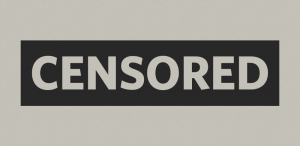CPJ: Mountain Of Impunity Looms Over Kurdistan Journalists
 The Alliance for Kurdish Rights is committed to mobilize public opinion, collect information and disseminate knowledge about human rights abuses against the Kurdish people throughout the Middle East. This also applies to human rights abuses in the Kurdistan Regional Government (KRG).
The Alliance for Kurdish Rights is committed to mobilize public opinion, collect information and disseminate knowledge about human rights abuses against the Kurdish people throughout the Middle East. This also applies to human rights abuses in the Kurdistan Regional Government (KRG).
Recently, the Committee to Protect Journalists (CPJ) released a special report compiled by journalist Namo Abdulla, titled “Mountain of impunity looms over Kurdistan journalists.”
The report commences with a threat voiced by Mahmoud Sangawi, a member of the party Patriotic Union of Kurdistan (PUK) and an army general, against the journalist Kawa Garmyane:
“You son of a dog, if you publish that magazine tomorrow, I’ll entomb your head in your dog father’s grave.”
Kawa Garmyane was the editor of the magazine Rayel and he had written articles about corruption in Kurdish politics in the KRG. Kawa was killed 18 months after the phone call, shot in front of his home in Sulaymaniya in December, 2013. That same month, protesters in Kurdistan protested with banners that read “Not only the killer. Who’s behind the killer?” and “We all know who the killer is.” Sangawi was arrested for the murder but soon released, as there was allegedly no evidence to support the charges.
The death of Kawa seemed like a repetition of a similar killing a few years earlier. In May 2010, a 23-year-old student and freelance journalist Sardasht Osman was abducted in front of the University in Hewler (Erbil) in KRG. He was found dead on a road in Mosul two days later. He had two bullets in his head.
Osman had seen his death coming. After having published articles about corruption among top government officials and especially one article named “I Am In Love With Barzani’s Daughter” about nepotism and the wealth of the ruling Barzanî family, he wrote:
“I am not afraid of death from torture. I’m here waiting for my appointment with my murderers. I am praying for the most tragic death possible, to match my tragic life.”
People protested his death and a statement was issued by journalists, editors and intellectuals, noting:
“We believe the Kurdistan Regional Government and its security forces are responsible first and foremost and they are supposed to do everything in order to find this evil hand.”
But security forces did not conduct a proper and transparent investigation into his death and his family still fear for their lives.
The report describes several cases of the unsafe circumstances that journalists in the KRG work and live under and cites lawsuits and arbitrary detentions as a way of silencing journalists and impeding their work. The report points out that the problem is not a lack of laws to protect journalists but rather the enforcement of those laws:
“Kurdistan is a region where law is not enforced, courts are not independent,” Rahman Gharib, a general coordinator for the Metro Center, told CPJ. “[…] All the judges are appointed on the basis of their loyalty to the ruling parties.”
But judge Rawand Maasum, an official at the Ministry of Justice, disagrees.
“All of us have had some party position before. But courts are sacred places. When we step into them, we strip ourselves of party affiliations. We act independently.”
In summary, the report highlights that journalists and other Kurds alike are not satisfied with the ruling powers and the government’s lack of transparency and the consequences that follow if journalists try to uncover what is going on among top officials in the KRG.
The report mentions that the laws are worded in such a vague manner that it allows for arrests to be made if, for example, an article is deemed to be “sowing malice and fostering hatred,” “insulting religious beliefs,” “insulting and offending religious symbols,” or revealing “the private lives of individuals.”
The Kurdish people have lived decades upon decades under the rule of oppressive regimes that have stripped them off their basic human rights. The Kurdistan Regional Government ought to be the safe and free homeland for any Kurd and allow for his or her voice to be uttered and heard with no threat of restriction, prison or death looming.
The KRG must make sure that journalists do not feel the need to exercise self-censorship and that detentions of journalists are thoroughly investigated and committees are established to conduct effective, unbiased and transparent investigations into the cases of the murdered journalists. Serious measures must be taken to ensure these incidents do not occur again.
Critical voices are important to carry the Kurdish society forward and it is our hope that the Kurdistan Regional Government acknowledges this so that we do not move backwards. Failing this, the Kurdish people can and will hold them accountable.
The report in its full form can be read here.
Comments are closed.